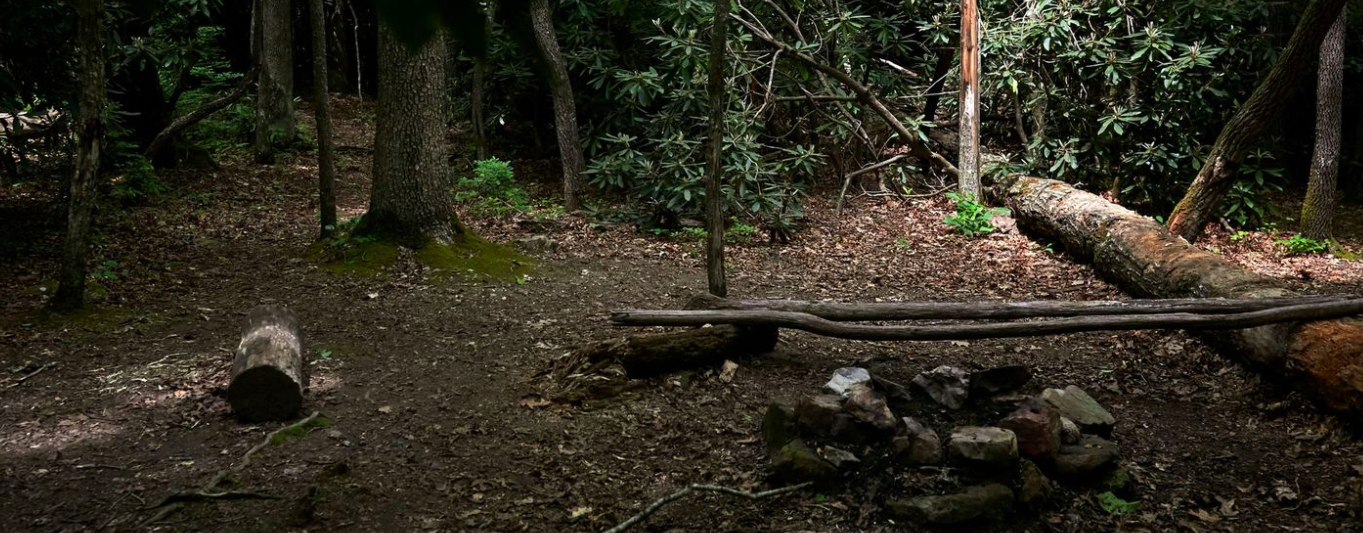The disturbing case of James Jordan - The Appalachian Trail Murderer
Revised November 2024
Introduction to the James Jordan Appalachian Trail attacks in 2019
James Louis Jordan, 30, of West Yarmouth, Massachusetts, was arrested early on Saturday, May 11, 2019. He was charged with one count of murder and one count of assault with the intent to murder within the special maritime territorial jurisdiction of the United States.
He had undertaken an attack on the Appalachian Trail on Friday, May 10, 2019, which left one hiker dead and another hospitalized. His first appearance in federal court was in Abingdon on Monday, May 13, 2019.
This was the first murder on the Appalachian Trail since 2011 when hiker Scott Lilly, 30, of South Bend, Indiana, was killed and left in a shallow grave in Amherst County, Virginia. No one has yet been arrested for the crime.
The most infamous murder on the Appalachian Trail occurred in May 1981 near Pearisburg, Virginia, when the bodies of two hikers, Robert Mountford Jr. and Laura Susan Ramsay, both of Maine, were found in their sleeping bags. Mountford had been shot three times in the face, while Ramsay was stabbed repeatedly with a long nail. Randall Lee Smith was arrested, and he pleaded guilty to two counts of second-degree murder. A 1984 book "Murder on the Appalachian Trail" by the author Jess Carr covered the incident. Smith was paroled in 1996 after serving 15 years of a 30-year prison sentence. He returned to the Appalachian Trail in May 2008 and was arrested for shooting and wounding two fishermen near where he killed Mountford and Ramsey. He died soon after in custody.
The May 2019 Appalachian Trail attack and murder
The criminal complaint filed in the U.S. District Court for the Western District of Virginia stated the incident began when Jordan approached a group of four hikers in Jefferson National Forest in western Virginia on the evening of May 10th. He had walked the Appalachian Trail for weeks with his dog, Felicia. His trail name was Sovereign, “the captain of the hit squad,” when he looked into the eyes of the hikers he encountered, he seemed very far away.
That evening, Jordan was “acting disturbed and unstable and was playing his guitar and singing.” Later that night, the four set up camp a few miles from where they first met him on a Wythe County, Virginia site near Mount Rogers National Recreation Area. Jordan appeared and began threatening the hikers in their shelters, saying that he was going to “pour gasoline on their tents and burn them to death.” At that point, the four hikers decided to relocate their camp. Jordan then confronted them with a knife. Two of the hikers ran north on the trail to escape. They called 911 at 2.30 am, saying that a man with a knife was chasing them.
Camp site - Mount Rogers National Recreation Area
Jordan eventually gave up and returned to the campsite; he then began verbally abusing the other two hikers, a man and a woman. Jordan and 43-year-old Ronnie S. Sanchez Jr., of Oklahoma, started arguing. Sanchez started trying to phone 911 from his cell phone, and at this point, Jordan began stabbing him in the upper torso as the woman looked on.
Ronnie S. Sanchez Jr.
Sanchez had served three tours in Iraq and 16 years in the U.S. Army. He had returned to the United States with PTSD as well as combat-related injuries, according to his former wife, Elizabeth Sanchez. He didn’t like to talk about it. He didn’t want to be around people and wouldn’t even go to the grocery store in the daytime. He had the trail name “Stronghold” and told his ex-wife he’d found peace and clarity on the trail. He began his trek early in the season, figuring he’d average a slower pace than most due to knee and shoulder injuries.
When Sanchez Jr. fell to the ground covered in blood from the knife attack, the female hiker attempted to run away with Jordan in pursuit. When he had chased her down, she raised her arms in surrender, and then he began stabbing her repeatedly, at which point she, too, fell to the ground. Fortunately, she played dead, and Jordan then left and returned to the campsite without finishing her off.
After Jordan left the scene, the female hiker got up and continued running down the trail, eventually coming upon some other campers just off the trail, who then helped her hike six more miles to a trailhead. Here, they called 911 to report the stabbings. She was transported to a nearby medical center in Bristol, Tennessee.
Jordan returned down the trail and approached another pair of backpackers asleep in their tent, shouting at them that he needed a flashlight. “They were real reluctant to just talk to him. They thought it was a little unusual,” said Wythe County Sheriff Keith Dunagan at a press briefing. “They didn’t even see the person, and luckily, they didn’t come out of the tent.”
Using pings from a nearby cell phone tower, authorities were able to locate the approximate location of the first stabbing, and the tactical team of the Wythe County Sheriff’s Office then began the four-mile hike to the crime scene. At 6.14 am the following day, the group arrived at the campsite where the first attack occurred. There, they found Sanchez's body, who had died from his injuries, along with a dog, which then led the team to the suspect. The deputies found blood on Jordan’s clothes and arrested him. “We had our whole tac team up there, so he wisely surrendered himself,” said Dunagan.
Jordan’s background - a tail of deprivation, drugs and mental illness
James Jordan
Back home in New England, where Jordan grew up, his old friends might have recognized what was happening. To them, 30-year-old Jordan was JJ: childish and searching, damaged and vulnerable to delusions. When his paranoia flared, his pupils would dilate, and he would slip into what a close friend called “the shimmer,” a terrifying place somewhere beyond reality where the government conducted experiments and incinerated bodies.
His whole life, he had evaded treatment for his mental illness. He signed himself out of hospitals and refused medication. His crimes were never severe enough to lock him up for long. The last chance to stop him had come in April 2019, when police in Tennessee arrested him, slurring and stumbling and armed. But they, too, had failed to see the danger and released him days later.
Jordan spent his childhood living with his mother and younger brother in low-income housing on Cape Cod. He didn’t know his father, who died of a drug overdose when he was 6. His mother drank heavily and allowed Jordan to wander without supervision, staying days at a time with friends. Adults who knew Jordan then said he was sweet and fragile, a budding guitar player who seemed in search of structure.
He started drinking and using marijuana as a child. He didn’t seem to go to school regularly. By 13 or 14, he was arrested with a friend for breaking into a car and prosecuted in juvenile court.
Neighbor Lynette Lopes could hear Jordan and his mother, Dale Wildes, fighting inside their apartment. Wildes didn’t force her son into treatment. Instead, Lopes said, she had him banned from her apartment by housing management. “The mother couldn’t control him,” Lopes said. Wildes would let him back in when Jordan was doing better, but she had to sneak him past management because of the ban.
It is uncertain when exactly his mother moved to Winooski, Vt., near Burlington, and no one knew how long afterwards Jordan followed, though most people estimated he was around 16 years old.
Those who lived in the ring of squat brick-and-siding apartments where the family settled remember the screaming from behind the door at Number 3.
The housing complex of 16 apartments looks out onto a cracked blacktop, a threadbare place on a dead-end street. Residents recalled Jordan as a teenager with close-cropped hair and baggy jeans, spilling out of his family’s apartment at all hours, sometimes furious, sometimes dejected, trudging off to find a place to sleep under the stars. “He was a lost kid from way back,” said Marcy Ryan, who lived next door.
The first time Ryan met Jordan, he was crowing about a burglary he’d committed, showing off the broken ankle he’d gotten as he jumped from the second-story window to escape the homeowner. Later, Ryan would hear Jordan’s shouts from inside the home: “I can do what I want, and you can’t stop me!”
Jordan’s younger brother, Dustin Wildes, said Jordan trashed their house and refused to seek counseling. “He was and is to this day insane and just a terrible person,” he wrote in a Facebook message to a reporter. “[My mother] tried and tried, but only so much you can do before someone becomes a lost cause.”
Away from his family, Jordan could be gentle. He was close with another teenager in the complex, and the boy’s mother took him in. The woman said that the more time she spent with Jordan, the more she realized how little he had. She would cook standard meals for him, and he would tell her he’d never had them. She couldn’t understand it until she realized no one else cooked him full meals; he ate ingredients. Most heartbreaking, the woman said, the way Jordan would drape his arm across her shoulders and tell her, “I love you, Ma.” She would reply, “I love you too, kid.”
But his home life seethed, and Jordan grew more erratic. His hair hung long and shaggy, and he started to paint his nails black. He began selling marijuana and took to walking around Winooski at night, saying he wanted to beat someone up, said a friend from the time, who asked to be identified only as Stephen for fear of retaliation. One of the last times Stephen hung out with Jordan, they walked through the woods and down to a pond with a group. Jordan walked to the water’s edge and scooped up a frog. Stephen said he put the frog on the ground and stomped it dead. Then James Jordan took out his switchblade and tore the animal apart.
He sometimes slept in this baseball field dugout in Winooski after arguing with his mother. Finally, neighbors said, Dale Wildes got her son a tent and sent him into the world.
Jordan moved between Vermont and Cape Cod, selling drugs, according to friends. He would get fixated on escape routes from wherever he was or on the idea that people were talking about him. He got angry quickly, and he was troubled. But until the winter of 2011, just before his 22nd birthday, his friends figured it was just JJ.
One morning in January, police in Shelburne, Vt., found him lying on the floor of a Days Inn that he had refused to check out of. He had piled his belongings on a table and was talking to himself.
Like so many of Jordan’s interactions with the police, this was a nuisance call. Officers just wanted him to leave, according to the police report, until Jordan volunteered that he had a pound of marijuana in his car. He also offered to have robbed a cell phone from the front desk. The officers let him return the phone but arrested him for the pot. According to court documents, he pleaded guilty and was sentenced to a few days in jail.
He never returned for his car. Instead, he showed up at the home of the woman who had taken him in as a teenager in Winooski, babbling about ravens, gods, and devils. She and her husband took him to the University of Vermont Medical Center, and later, he was transferred to another inpatient facility. But he signed himself out of treatment and disappeared.
His longtime friend Marguerite Tynan, 32, found him some days later, walking down the street in Cape Cod, his pupils dilated, rambling incoherently in a blend of his wild tales and lyrics from a Lil Wayne song. “It was like he was speaking a different language,” said Tynan, who has known Jordan since he was a teenager and repeatedly tried to get him help.
He told Tynan and other friends he was bipolar. He said he had been prescribed medication, but it made him feel like a zombie. Tynan remembers sitting at the kitchen table with Jordan as he cried and begged her, “Please don’t make me take them anymore.”
He stayed with Tynan and her ex-boyfriend for months, and she tried to soothe him while he ranted about conspirators. He was convinced that her ex was incinerating corpses at his restaurant job on behalf of the government; he believed his medication was a governmental plot to silence him; he tried to bury bullets in the backyard to keep them hidden but close. His delusions could be terrifying and fed by the people he saw around him. He babbled and grew frustrated when she didn’t understand. “He thinks he’s seeing something, another layer that’s not always clearly there,” said Tynan. “Like he’s seeing what’s really real now. Like a door opened up.” She called that world “the shimmer.”
Jordan slept in the wilderness. For a time, Tynan said, the road seemed to be better medication than his pills. “I saw dope-ass scenery,” he would tell her.
In June 2013, a year and a half after he took to the open road, he was arrested three times in quick succession in Barnstable County: for staggering without a shirt down the middle of Route 28 and fleeing police whilst screaming incoherently, for fighting staff at Cape Cod Hospital and insisting they were trying to give him a lethal injection; and, the next day, for walking naked near Cape Cod Airfield. A judge ordered a mental health evaluation, but Jordan was found to be competent and released, according to court documents. An audio recording of the court session where his mental health was discussed was destroyed.
He wrote on Facebook shortly afterwards, “Extreme apathy and empathy have pushed me on the edge of existential nihilism. The wolf in me barely has tears left and is close to empty.”
His cases were continued without a finding, and he was ordered to obtain counseling in Vermont. Instead, he traveled to Florida, where he was again arrested and convicted, this time for stealing $6.98 worth of chicken and soda from a Publix, according to a police report.
Jordan stopped showing up to court in Massachusetts altogether. Friends tried to convince him to take medication or seek treatment. At least once, Tynan thought, he was hospitalized again, but he resisted any attempts to help him.
Instead, he kept moving from state to state, hooking up with fellow travelers who regularly gathered in forests across the country. He played his guitar on the street for money and put songs he recorded online, his voice warbling and muffled: “This world, this world, is a beautiful prison. . . .”
By February 2019, Jordan and his dog, Felicia, attended an Ocala, Fla., “Rainbow Gathering” — a congregation of travelers celebrating peace and love. There, he became convinced his food was being dosed with “research chemicals,” said Haley Rose, 19, who spent much of the gathering with him. He picked fights, and he was terrified that he was going to be attacked, Rose said. “He was petrified,” Rose said. “He was so far gone.”
Weeks later, he got a message from his younger brother, Dustin: Their mother was dying of lung cancer. He had to come home, but Jordan refused the request. “It’s shitty,” Jordan wrote back, Dustin said. “Have a nice life.” Their mother died on March 2. Jordan didn’t show up for the funeral, Dustin said.
April 2019 on the Appalachian Trail - harassing hikers
By April 2019, Jordan was hiking the Appalachian Trail in Tennessee with only a tarp for a tent. He spent nights screaming while other campers hid in their tents. “Do you want to fucking die?” according to two hikers who had the misfortune to meet him.
In mid-April, he allegedly threatened several hikers at a shelter in Tennessee. When the hikers arrived at a hostel a day later, they reported the incident to Mike Hensley, sheriff of Unicoi County, Tennessee, who interviewed them late that night. Hensley said, “We knew there was trouble down here with this boy. What really got my attention was that he told one of the hikers, ‘It’s going to be a bad day for hikers on the trail.’” Upon hearing that, Hensley says he immediately deployed deputies, but they could not locate Jordan. Authorities in North Carolina saw him a day or so later, but there was no warrant for his arrest, so they did not detain him.
According to Hensley, hikers observed Jordan behaving strangely at a trailhead on April 21, asking thru-hikers for the password needed to get on the trail. Then, on April 22, Jordan appeared at a road crossing where trail angels gave food to thru-hikers. Jordan initiated a verbal argument with some of the backpackers there, who also alerted authorities. He was apprehended with a fake ID, marijuana, and other drug paraphernalia. He was also carrying a 17-inch survival knife.
None of the hikers whom Jordan had assaulted in the April incident were willing to press charges or testify in court, so Jordan was arrested only for the fake ID and drug charges. He pleaded guilty and was ordered to stay off the trail. Hensley said, “I done all I could do. The only thing I could do is go with the charges I had. I knew this guy was a serious problem.” But news of his threatening behavior made its way up the trail, as reports of “Sovereign” harassing other hikers continued.
Police in Unicoi County, Tenn., arrested him on April 22 after the hikers reported the threats. Officers confiscated a 17-inch knife and charged him with drug and alcohol offenses, but he was released on probation seven days later. Jordan then just returned to the trail as if nothing had happened.
Matthew “Odie” Norman, a well-known former AT thru-hiker and founder of the Hiker’s Yearbook (a yearly record of hikers on the trail), encountered Jordan on May 2 at a trailhead near Tennessee’s Roan Mountain State Park. Norman recognized Jordan from his arrest photo, widely circulated in the trail community, and invited Jordan to dinner.
“We all knew about his violent interactions by then. I intended to get him off the trail for his safety and the safety of other hikers.” Over dinner, Jordan told him that hikers, whom Jordan called “the mountain people”, were being threatened by “infiltrators who were trying to steal their instruments” and that Jordan was remaining on the trail to protect the “mountain people” from harm.
Jordan also said that he had family in Maryland. Norman offered to buy him a Greyhound bus ticket there, and Jordan accepted. The two and Jordan’s dog traveled 90 miles to Johnston City, Tennessee, to put him on the bus. After dinner, Norman says Jordan and his dog (wearing a service-animal harness) spent a night in a Tennessee motel. On May 3, Jordan boarded a northbound bus. But apparently, he and his dog disembarked at the next stop.
On May 5, backpackers reported negative encounters with Jordan in and around Shenandoah National Park.
Discovery of the scene
“I’m glad you got here just in time,” Jordan told police. “Somebody was just standing over my head with a rock.”
According to the court documents, the tactical team also discovered a large knife, believed to be the murder weapon, near the victim’s body. Both the female stabbing victim and the two hikers who fled from Jordan identified him as the attacker. The sheriff’s department, working in concert with the Virginia State Police, closed approximately 16 miles of trail to complete a crime-scene investigation.
Officers walked him the 5 miles back to the road. Jordan was quiet. He was staring straight ahead, like none of them were there at all.
James Jordan
The Appalachian Trail is administered by the National Park Service, but the FBI has the ultimate jurisdiction over crimes committed there. Their Evidence Response Unit gathered evidence on the trail.
Why didn’t authorities stop Jordan earlier?
Unlike previous cases of hikers being attacked or killed on the Appalachian Trail, one thing that appears to distinguish this one is that it was preceded by six weeks of complaints about Jordan’s behavior—hikers posted on Facebook why more had not been done.
Jordan and his dog
Larry Smith, a Charleston, South Carolina hiker, ran into Jordan at a trail shelter in Atkins, Virginia, in early April. Smith said he’d gone to bed after eating hamburgers and beer with fellow hikers but woke to someone entering the shelter and starting a fire at about 10 p.m. “He was ranting and raving,” Smith said.
After disappearing upstairs for a moment, the man returned and said, “I’m gonna burn this shelter down.” When Smith asked if he was alright, the man jumped up on a table, threw his cigarette in Smith’s face, and challenged him to a fight. Smith said when he retreated to the parking lot to call 911, the man followed and then disappeared.
“At that time, I thought he was just another hiker who’d gotten drunk or one of the locals who’d gotten a little drunk,” he added. But when another trail blogger posted Jordan’s photo a few weeks later, he realized he “looked just like the guy” who had threatened to burn down the shelter.
Brian King, the publisher at the Appalachian Trail Conservancy (a nonprofit dedicated to the preservation and management of the trail), says that the ATC was well aware of the recurring complaints about Jordan and had been urging hikers to contact local authorities or call 911. The organization had also asked its ridge runners (people on the trail to assist and answer questions) to alert hikers to possible encounters with Jordan.
Hikers did not see any warnings posted or any other alerts about potential issues on the trail. The National Park Service referred all questions to the FBI, which did not know if any warnings had been posted since that would have occurred before the crime. Hikers wanted an answer as to why Jordan was allowed to remain on the trail.
The aftermath
A judge ordered in May 2019 that Jordan be detained for a psychological or psychiatric examination to determine whether he suffered from a “mental disease or defect” that would make him unable to understand the charges he faces or help attorneys in his defense. Following this, Jordan was admitted to the Mental Health Unit of FMC-Butner on October 1, 2019.
According to documents filed in the United States District Court, Western District of Virginia, “This matter is before the court on the request of the Bureau of Prisons for an extension of time to continue treating the defendant to restore the defendant to competency.”
Magistrate Judge Pamela Meade Sargent agreed to give the Bureau of Prisons 120 more days in the “period of restoration.” She also stated that: “…the treating psychiatrist or psychologist shall report his/her findings to this court as to the following:
a. Whether the defendant is suffering from a mental disease or defect rendering him mentally incompetent to the extent that he is unable to understand the nature and consequences of the proceedings against him or assist properly in his defense; and
b. If so, whether there is a substantial probability that in the foreseeable future, the defendant will attain the capacity to permit his trial to proceed.”
She also ruled that the U.S. Marshals Service “shall not” bring Jordan back to the district until the court orders it.
On April 22, 2021, a federal judge accepted a plea of not guilty by reason of insanity from Jordan. Both the prosecution and defense reached an agreement for the plea after a sanity evaluation found that he suffered from schizoaffective disorder and concluded that he was "unable to appreciate the wrongfulness of his acts.”
Jordan was committed to a psychiatric institution and "will not be released until a court finds by clear and convincing evidence that his release would not create a substantial risk of injury to anyone else.”
Exclusive articles for members of StrangeOutdoors that are not available elsewhere on the site.
Click here for a list of Exclusive members-only articles on StrangeOutdoors.com
Read other stories from the Appalachian Trail
Murder on the Appalachian Trail
The Disturbing disappearance of Jessie Albertine Hoover from the Appalachian Trail
Read other true crime stories
Sources
https://www.outsideonline.com/2396150/appalachian-trail-murder-2019-james-jordan
https://www.thedailybeast.com/james-jordan-charged-with-hacking-appalachian-trail-hiker-to-death-weeks-after-release-from-jail
https://www.bostonglobe.com/metro/2019/05/25/the-long-twisted-fatal-journey-hiker-called-sovereign/NmN3GKuQDZub5tfOdbL6pI/story.html
https://www.wjhl.com/news/local/court-documents-bureau-of-prisons-officials-ask-for-more-time-to-treat-accused-appalachian-trail-murderer/
https://nypost.com/2019/07/04/suspect-in-appalachian-trail-slaying-found-unfit-to-stand-trial/
https://www.yahoo.com/news/massachusetts-man-facing-federal-charges-fatal-machete-attack-203500953--abc-news-topstories.html
https://people.com/crime/man-who-killed-hiker-appalachian-trail-found-not-guilty-by-reason-of-insanity/
















